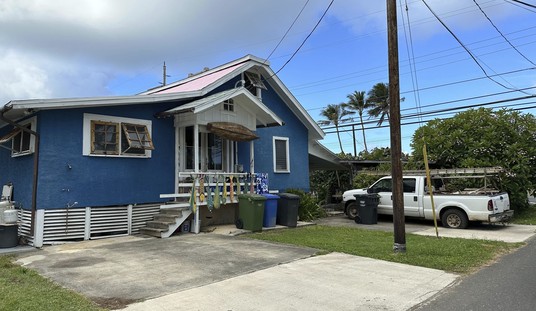Patients, beware. When you're admitted to a hospital, you're routinely encouraged to sign a Do Not Resuscitate order, also known as a DNR. Don't assume it will be applied only in extreme circumstances. New research shows having those three letters on your chart could put you on course to getting less medical and nursing care throughout your stay. Fewer MRIs and CT scans, fewer medications or even fewer bedside visits from doctors. A DNR could cost you your life.
Having a DNR means that if your heart stops or you can't breathe, medical staff will let you die naturally, instead of rushing to give you cardiopulmonary resuscitation. Correctly interpreted, a DNR bars just that one procedure -- resuscitation. But researchers are discovering that many doctors and nurses take DNR to mean you want end-of-life care only. They misconstrue DNR as Dying, Not Recovering.
They even hesitate to put DNR patients in the ICU when they need intensive care.
No wonder patients with DNRs have worse recovery rates than patients with identical conditions and no DNRs.
Hip fracture surgery patients who opt for DNRs reduce their chances of surviving their hospital stay. At Brigham and Women's Hospital in Boston, researchers found that "mortality was over two times greater" for patients with DNRs than those without them.
These new findings should serve as a warning not to have a DNR unless you already have a terminal illness.
"The reality is less care," warns Ferdinando Mirarchi, an emergency room physician and founder of the nonprofit Institute on Healthcare Directives. Caregivers assume patients with DNRs are not interested in living.
Mirarchi identifies the misuse of DNRS as a serious patient safety problem. Patients agree to a DNR without understanding it.
Recommended
Many opt for DNRs because they fear a complication will leave them unconscious or unable to control their own care. They dread being hooked up indefinitely to machines and tubes. Valid worries, but a DNR is not the answer.
A better way to prevent becoming a captive of medical machinery is to make a living will -- a legal document limiting what hospitals can do when you become incapacitated. At the Institute for Healthcare Directives, patients can even make short videos clarifying their wishes in their own words.
That could help. At top medical centers including Stanford University School of Medicine, University of Pittsburgh School of Medicine, the State University of New York at Buffalo and University of Minnesota Medical School, many doctors misinterpret DNRs to mean patients want end of life or comfort care only.
DNRs are dangerous for patients with pneumonia, trauma, strokes, vascular problems and other treatable conditions, according to studies in the Archives of Internal Medicine and Critical Care Medicine. An analysis of California hospitals published in the found that patients had higher death rates in hospitals that encourage DNRs. Amazingly, these hospitals worried that their higher death rates lowered their Medicare quality rankings and reimbursements. They wanted the ranking method changed.
Sorry. Hospitals need to train staff better to understand DNRs and living wills and respect patient preferences.
They also need to explain to patients what resuscitation means. It gets a bad rap, but most resuscitated patients can expect a relatively good quality of life. Even elderly resuscitated patients bounce back half the time with no neurological impairment.
In the meantime, patients need to keep in mind that hospitals are under pressure from health regulators to ask every patient whether they want resuscitation or prefer a DNR. If you plan on getting out of the hospital and resuming your active life, don't opt for a DNR. Those three letters could be dangerous to your health.
























Join the conversation as a VIP Member